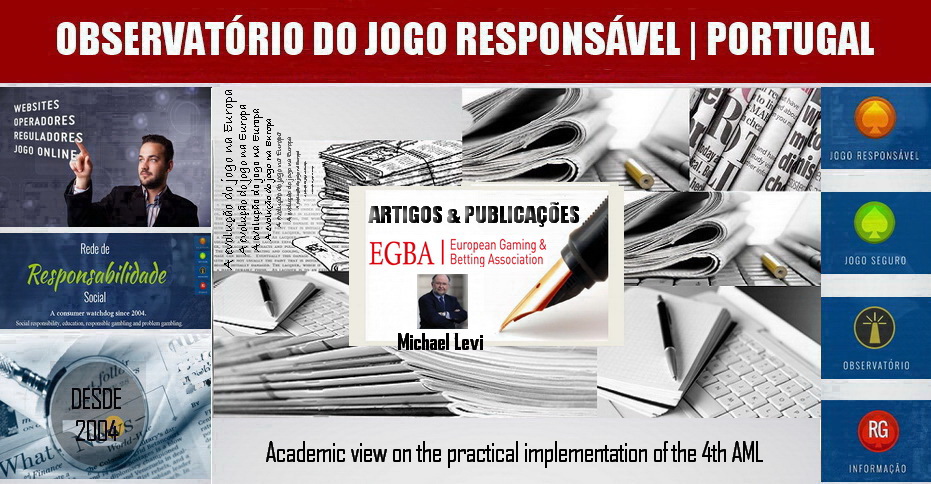 In the light of recent terrorist attacks, the EU’s 4th Anti-Money Laundering (AML) directive could be implemented as early as the end of 2016. Since terrorist finance is normally treated with zero risk tolerance, the directive is likely to be toughened up, which will place more pressure on the gambling industry and all other regulated bodies to show that funds are not going to terrorists and that terrorists’ crimes for gain are not being laundered. In the summer, further provisions to the 4th AML directive are likely to be added covering virtual currencies, prepaid cards, risky third countries, and the exchange of information.
In the light of recent terrorist attacks, the EU’s 4th Anti-Money Laundering (AML) directive could be implemented as early as the end of 2016. Since terrorist finance is normally treated with zero risk tolerance, the directive is likely to be toughened up, which will place more pressure on the gambling industry and all other regulated bodies to show that funds are not going to terrorists and that terrorists’ crimes for gain are not being laundered. In the summer, further provisions to the 4th AML directive are likely to be added covering virtual currencies, prepaid cards, risky third countries, and the exchange of information.
In the meantime, the directive, for the first time, includes online gambling specifically as was previously the case for land based casinos, and includes provisions covering enhanced due diligence on domestic politically exposed persons (PEPs), beneficial ownership of accounts, tax crimes, and simplified due diligence for activities that are evidenced as being ‘low risk’.
Both the European Commission collectively and each Member State separately are required to produce their own assessments of higher and lower risks. As for evidential risk assessment, it is easy for regulators and firms to mistake criminal spending on gambling with laundering the proceeds, and not clear what they should do if the former is not aimed at the latter but just at having fun and hoping to win. This is nicely caught in the UK Gambling Commission’s phrase “keeping crime out of business”.
Where the nature and scale of gambling operations and payment mechanisms used can be proven by a Member State to be low risk, gambling operations – except for casinos – can be exempted. But this can only be achieved after the Member State has carried its own risk assessment and notified the European Commission.
Gambling operators will be obliged to apply customer due diligence (CDD) measures – “on the basis of documents, data or information obtained from a reliable and independent source” and “take into account risk factors including those relating to their customers, countries or geographic areas, products, services, transactions or delivery channels”.
“The directive is likely to be toughened up, which will place more pressure on the gambling industry and all other regulated bodies to show that funds are not going to terrorists and that terrorists’ crimes for gain are not being laundered.”
On that basis, the gambling industry as a whole will need to document the rationale and keep records of risk assessments. Though there remains some scope for money laundering via online gambling, the threat is low. There is very little cash involved in online gambling, and regulated companies keep an audit trail of all transactions making it harder work for criminals to launder their proceeds. The main sources of risks arise from unregistered gambling firms outside the EU.
remains some scope for money laundering via online gambling, the threat is low. There is very little cash involved in online gambling, and regulated companies keep an audit trail of all transactions making it harder work for criminals to launder their proceeds. The main sources of risks arise from unregistered gambling firms outside the EU.
To conclude, the objective for regulators and industry alike is that as little proceeds of crime as possible is spent on gambling (online or offline) irrespective of whether the criminals are focused on making the funds legitimate and retaining them afterwards rather than unintentionally passing them over to online gambling companies. Cautionary tales and occasional fines are well enough known in the industry but it is going to be hard to maintain clarity about what is meant by ‘low’ money-laundering risk. This is part of a more general problem with what risk means when it does not apply to a direct loss or harm or something whose probability is reasonably known.
Source: EGBA News


























